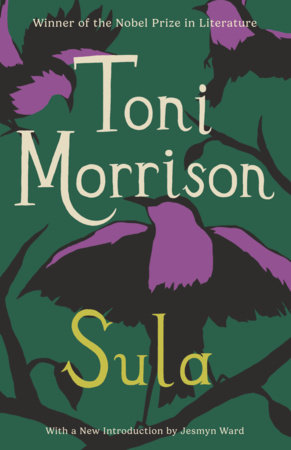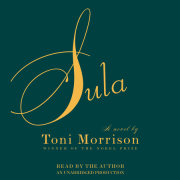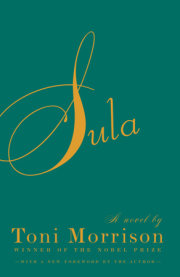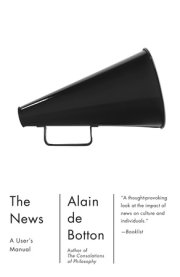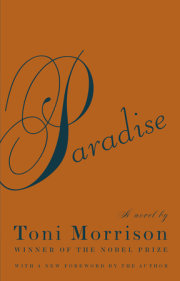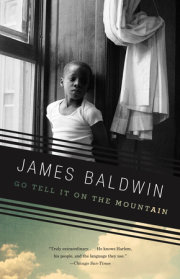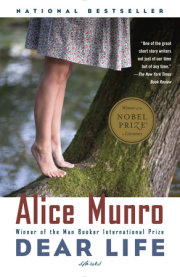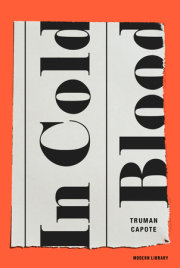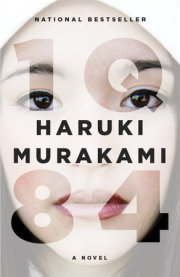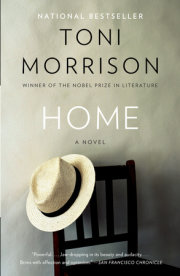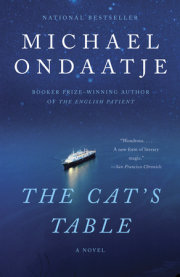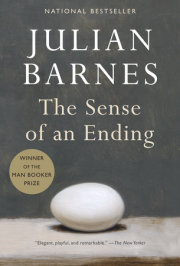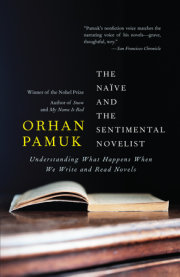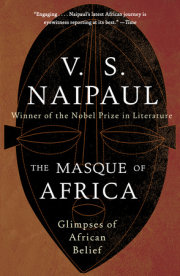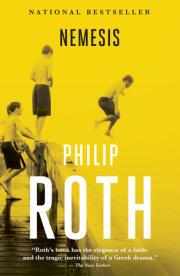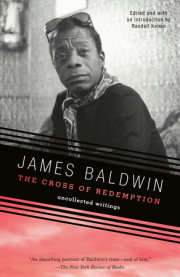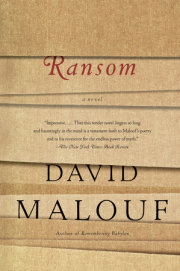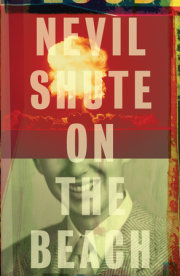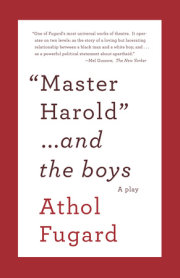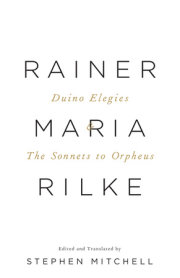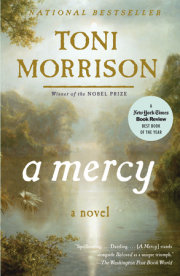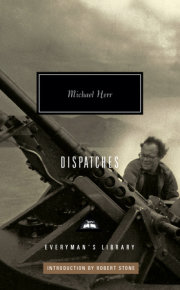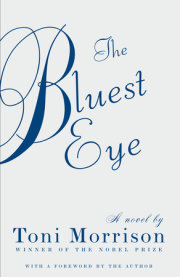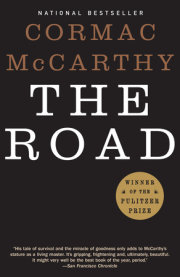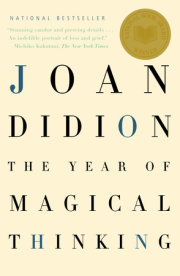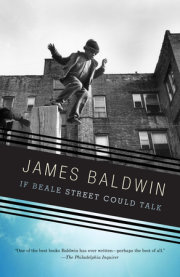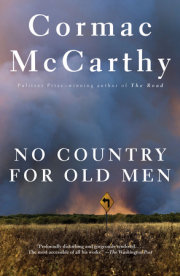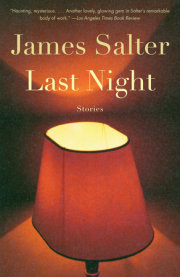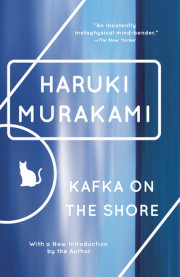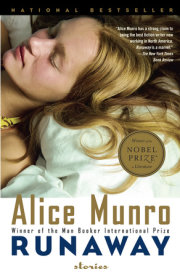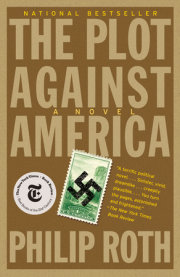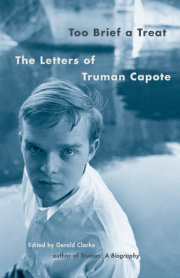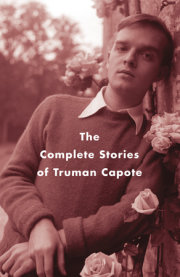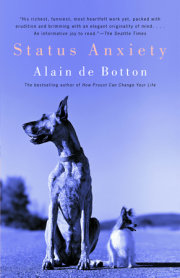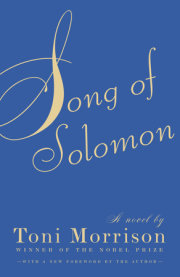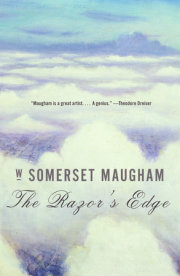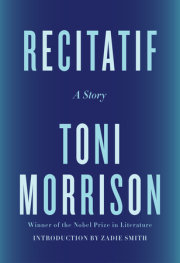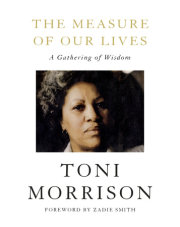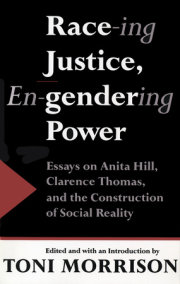In that place, where they tore the nightshade and blackberry patches from their roots to make room for the Medallion City Golf Course, there was once a neighborhood. It stood in the hills above the valley town of Medallion and spread all the way to the river. It is called the suburbs now, but when black people lived there it was called the Bottom. One road, shaded by beeches, oaks, maples and chestnuts, connected it to the valley. The beeches are gone now, and so are the pear trees where children sat and yelled down through the blossoms to passersby. Generous funds have been allotted to level the stripped and faded buildings that clutter the road from Medallion up to the golf course. They are going to raze the Time and a Half Pool Hall, where feet in long tan shoes once pointed down from chair rungs. A steel ball will knock to dust Irene's Palace of Cosmetology, where women used to lean their heads back on sink trays and doze while Irene lathered Nu Nile into their hair. Men in khaki work clothes will pry loose the slats of Reba's Grill, where the owner cooked in her hat because she couldn't remember the ingredients without it.
There will be nothing left of the Bottom (the footbridge that crossed the river is already gone), but perhaps it is just as well, since it wasn't a town anyway: just a neighborhood where on quiet days people in valley houses could hear singing sometimes, banjos sometimes, and, if a valley man happened to have business up in those hills--collecting rent or insurance payments--he might see a dark woman in a flowered dress doing a bit of cakewalk, a bit of black bottom, a bit of "messing around" to the lively notes of a mouth organ. Her bare feet would raise the saffron dust that floated down on the coveralls and bunion-split shoes of the man breathing music in and out of his harmonica. The black people watching her would laugh and rub their knees, and it would be easy for the valley man to hear the laughter and not notice the adult pain that rested somewhere under the eyelids, somewhere under their head rags and soft felt hats, somewhere in the palm of the hand, somewhere behind the frayed lapels, somewhere in the sinew's curve, He'd have to stand in the back of Greater Saint Matthew's and let the tenor's voice dress him in silk, or touch the hands of the spoon carvers (who had not worked in eight years) and let the fingers that danced on wood kiss his skin. Otherwise the pain would escape him even though the laughter was part of the pain.
A shucking, knee-slapping, wet-eyed laughter that could even describe and explain how they came to be where they were.
A joke. A nigger joke. That was the way it got started. Not the town, of course, but that part of town where the Negroes lived, the part they called the Bottom in spite of the fact that it was up in the hills. Just a nigger joke. The kind white folks tell when the mill closes down and they're looking for a little comfort somewhere. The kind colored folks tell on themselves when the rain in doesn't come, or comes for weeks, and they're looking for a little comfort somehow.
A good white farmer promised freedom and a piece of bottom land to his slave if he would perform some very difficult chores. When the slave completed the work, he asked the farmer to keep his end of the bargain. Freedom was easy--the farmer had no objection to that. But he didn't want to give up any land. So he told the slave that he was very sorry that he had to give him valley land. He had hoped to give him a piece of the Bottom. The slave blinked and said he thought valley land was bottom land. The master said, "Oh, no! See those hills? That's bottom land, rich and fertile."
"But it's high up in the hills," said the slave.
"High up from us," said the master, "but when God looks down, it's the bottom. That's why we call it so. It's the bottom of heaven-best land there is."
So the slave pressed his master to try to get him some. He preferred it to the valley. And it was done. The nigger got the hilly land, where planting was backbreaking, where the soil slid down and washed away the seeds, and where the wind lingered all through the winter.
Which accounted for the fact that white people lived on the rich valley floor in that little river town in Ohio, and the blacks populated the hills above it, taking small consolation in the fact that every day they could literally look down on the white folks.
Still, it was lovely up in the Bottom. After the town grew and the farm land turned into a village and the village into a town and the streets of Medallion were hot and dusty with progress, those heavy trees that sheltered the shacks up in the Bottom were wonderful to see. And the hunters who went there sometimes wondered in private if maybe the white farmer was right after all. Maybe it was the bottom of heaven.
The black people would have disagreed, but they had no time to think about it. They were mightily preoccupied with earthly things-and each other, wondering even as early as 1920 what Shadrack was all about, what that little girl Sula who grew into a woman in their town was all about, and what they themselves were all about, tucked up there in the Bottom.
1919Except for World War II, nothing ever interfered with the celebration of National Suicide Day. It had taken place every January third since 1920, although Shadrack, its founder, was for many years the only celebrant. Blasted and permanently astonished by the events of 1917, he had returned to Medallion handsome but ravaged, and even the most fastidious people in the town sometimes caught themselves dreaming of what he must have been like a few years back before he went off to war. A young man of hardly twenty, his head full of nothing and his mouth recalling the taste of lipstick, Shadrack had found himself in December, 1917, running with his comrades across a field in France. It was his first encounter with the enemy and he didn't know whether his company was running toward them or away. For several days they had been marching, keeping close to a stream that was frozen at its edges. At one point they crossed it, and no sooner had he stepped foot on the other side than the day was adangle with shouts and explosions. Shellfire was all around him, and though he knew that this was something called
it, he could not muster up the proper feeling--the feeling that would accommodate
it. He expected to be terrified or exhilarated--to feel
something very strong. In fact, he felt only the bite of a nail in his boot, which pierced the ball of his foot whenever he came down on it. The day was cold enough to make his breath visible, and he wondered for a moment at the purity and whiteness of his own breath among the dirty, gray explosions surrounding him. He ran, bayonet fixed, deep in the great sweep of men flying across this field. Wincing at the pain in his foot, he turned his head a little to the right and saw the face of a soldier near him fly off. Before he could register shock, the rest of the soldier's head disappeared under the inverted soup bowl of his helmet. But stubbornly, taking no direction from the brain, the body of the headless soldier ran on, with energy and grace, ignoring altogether the drip and slide of brain tissue down its back.
When Shadrack opened his eyes he was propped up in a small bed. Before him on a tray was a large tin plate divided into three triangles. In one triangle was rice, in another meat, and in the third stewed tomatoes. A small round depression held a cup of whitish liquid. Shadrack stared at the soft colors that filled these triangles: the lumpy whiteness of rice, the quivering blood tomatoes, the grayish-brown meat. All their repugnance was contained in the neat balance of the triangles--a balance that soothed him, transferred some of its equilibrium to him. Thus reassured that the white, the red and the brown would stay where they were--would not explode or burst forth from their restricted zones--he suddenly felt hungry and looked around for his hands. His glance was cautious at first, for he had to be very careful--anything could be anywhere. Then he noticed two lumps beneath the beige blanket on either side of his hips. With extreme care he lifted one arm and was relieved to find his hand attached to his wrist. He tried the other and found it also. Slowly he directed one hand toward the cup and, just as he was about to spread his fingers, they began to grow in higgledy-piggledy fashion like Jack's beanstalk all over the tray and the bed. With a shriek he closed his eyes and thrust his huge growing hands under the covers. Once out of sight they seemed to shrink back to their normal size. But the yell had brought a male nurse.
"Private? We're not going to have any trouble today, are we? Are we, Private?
Shadrack looked up at a balding man dressed in a green-cotton jacket and trousers. His hair was parted low on the right side so that some twenty or thirty yellow hairs could discreetly cover the nakedness of his head.
"Come on. Pick up that spoon. Pick it up, Private. Nobody is going to feed you forever."
Sweat slid from Shadrack's armpits down his sides. He could not bear to see his hands grow again and he was frightened of the voice in the apple-green suit.
"Pick it up, I said. There's no point to this. The nurse reached under the cover for Shadrack's wrist to pull out the monstrous hand. Shadrack jerked it back and overturned the tray. In panic he raised himself to his knees and tried to fling off and away his terrible fingers, but succeeded only in knocking the nurse into the next bed.
When they bound Shadrack into a straitjacket, he was both relieved and grateful, for his hands were at last hidden and confined to whatever size they had attained.
Laced and silent in his small bed, he tried to tie the loose cords in his mind. He wanted desperately to see his own face and connect it with the word "private"--the word the nurse (and the others who helped bind him) had called him. "Private" he thought was something secret, and he wondered why they looked at him and called him a secret. Still, if his hands behaved as they had done, what might he expect from his face? The fear and longing were too much for him, so he began to think of other things. That is, he let his mind slip into whatever cave mouths of memory it chose.
He saw a window that looked out on a river which he knew was full of fish. Someone was speaking softly just outside the door . . .
Shadrack's earlier violence had coincided with a memorandum from the hospital executive staff in reference to the distribution of patients in high-risk areas. There was clearly a demand for space. The priority or the violence earned Shadrack his release, $217 in cash, a full suit of clothes and copies of very official-looking papers.
When he stepped out of the hospital door the grounds overwhelmed him: the cropped shrubbery, the edged lawns, the undeviating walks. Shadrack looked at the cement stretches: each one leading clearheadedly to some presumably desirable destination. There were no fences, no warnings, no obstacles at all between concrete and green grass, so one could easily ignore the tidy sweep of stone and cut out in another direction--a direction of one's own.
Shadrack stood at the foot of the hospital steps watching the heads of trees tossing ruefully but harmlessly, since their trunks were rooted too deeply in the earth to threaten him. Only the walks made him uneasy. He shifted his weight, wondering how he could get to the gate without stepping on the concrete. While plotting his course--where he would have to leap, where to skirt a clump of bushes--a loud guffaw startled him. Two men were going up the steps. Then he noticed that there were many people about, and that he was just now seeing them, or else they had just materialized. They were thin slips, like paper dolls floating down the walks. Some were seated in chairs with wheels, propelled by other paper figures from behind. All seemed to be smoking, and their arms and legs curved in the breeze. A good high wind would pull them up and away and they would land perhaps among the tops of the trees.
Shadrack took the plunge. Four steps and he was on the grass heading for the gate. He kept his head down to avoid seeing the paper people swerving and bending here and there, and he lost his way. When he looked up, he was standing by a low red building separated from the main building by a covered walkway. From somewhere came a sweetish smell which reminded him of something painful. He looked around for the gate and saw that he had gone directly away from it in his complicated journey over the grass. Just to the left of the low building was a graveled driveway that appeared to lead outside the grounds. He trotted quickly to it and left, at last, a haven of more than a year, only eight days of which he fully recollected.
Once on the road, he headed west. The long stay in the hospital had left him weak--too weak to walk steadily on the gravel shoulders of the road. He shuffled, grew dizzy, stopped for breath, started again, stumbling and sweating but refusing to wipe his temples, still afraid to look at his hands. Passengers in dark, square cars shuttered their eyes at what they took to be a drunken man.
The sun was already directly over his head when he came to a town. A few blocks of shaded streets and he was already at its heart--a pretty, quietly regulated downtown.
Exhausted, his feet clotted with pain, he sat down at the curbside to take off his shoes. He closed his eyes to avoid seeing his hands and fumbled with the laces of the heavy high-topped shoes. The nurse had tied them into a double knot, the way one does for children, and Shadrack, long unaccustomed to the manipulation of intricate things, could not get them loose. Uncoordinated, his fingernails tore away at the knots. He fought a rising hysteria that was not merely anxiety to free his aching feet; his very life depended on the release of the knots. Suddenly without raising his eyelids, he began to cry. Twenty-two years old, weak, hot, frightened, not daring to acknowledge the fact that he didn't even know who or what he was . . . with no past, no language, no tribe, no source, no address book, no comb, no pencil, no clock, no pocket handkerchief, no rug, no bed, no can opener, no faded postcard, no soap, no key, no tobacco pouch, no soiled underwear and nothing nothing nothing to do . . . he was sure of one thing only: the unchecked monstrosity of his hands. He cried soundlessly at the curbside of a small Midwestern town wondering where the window was, and the river, and the soft voices just outside the door . . .
Through his tears he saw the fingers joining the laces, tentatively at first, then rapidly. The four fingers of each hand fused into the fabric, knotted themselves and zigzagged in and out of the tiny eyeholes.
By the time the police drove up, Shadrack was suffering from a blinding headache, which was not abated by the comfort he felt when the policemen pulled his hands away from what he thought was a permanent entanglement with his shoelaces. They took him to jail, booked him for vagrancy and intoxication, and locked him in a cell. Lying on a cot, Shadrack could only stare helplessly at the wall, so paralyzing was the pain in his head. He lay in this agony for a long while and then realized he was staring at the painted-over letters of a command to fuck himself. He studied the phrase as the pain in his head subsided.
Like moonlight stealing under a window shade an idea insinuated itself: his earlier desire to see his own face. He looked for a mirror; there was none. Finally, keeping his hands carefully behind his back he made his way to the toilet bowl and peeped in. The water was unevenly lit by the sun so he could make nothing out. Returning to his cot he took the blanket and covered his head, rendering the water dark enough to see his reflection. There in the toilet water he saw a grave black face. A black so definite, so unequivocal, it astonished him. He had been harboring a skittish apprehension that he was not real--that he didn't exist at all. But when the blackness greeted him with its indisputable presence, he wanted nothing more. In his joy he took the risk of letting one edge of the blanket drop and glanced at his hands. They were still. Courteously still.
Shadrack rose and returned to the cot, where he fell into the first sleep of his new life. A sleep deeper than the hospital drugs; deeper than the pits of plums, steadier than the condor's wing; more tranquil than the curve of eggs.
The sheriff looked through the bars at the young man with the matted hair. He had read through his prisoner's papers and hailed a farmer. When Shadrack awoke, the sheriff handed him back his papers and escorted him to the back of a wagon. Shadrack got in and in less than three hours he was back in Medallion, for he had been only twenty-two miles from his window, his river, and his soft voices just outside the door.
In the back of the wagon, supported by sacks of squash and hills of pumpkins, Shadrack began a struggle that was to last for twelve days, a struggle to order and focus experience. It had to do with making a place for fear as a way of controlling it. He knew the smell of death and was terrified of it, for he could not anticipate it. It was not death or dying that frightened him, but the unexpectedness of both. In sorting it all out, he hit on the notion that if one day a year were devoted to it, everybody could get it out of the way and the rest of the year would be safe and free. In this manner he instituted National Suicide Day.
On the third day of the new year, he walked through the Bottom down Carpenter's Road with a cowbell and a hangman's rope calling the people together. Telling them that this was their only chance to kill themselves or each other.
At first the people in the town were frightened; they knew Shadrack was crazy but that did not mean that he didn't have any sense or, even more important, that he had no power. His eyes were so wild, his hair so long and matted, his voice was so full of authority and thunder that he caused panic on the first, or Charter, National Suicide Day in 1920. The next one, in 1921, was less frightening but still worrisome. The people had seen him a year now in between. He lived in a shack on the riverbank that had once belonged to his grandfather long time dead. On Tuesday and Friday he sold the fish he had caught that morning, the rest of the week he was drunk, loud, obscene, funny and outrageous. But he never touched anybody, never fought, never caressed. Once the people understood the boundaries and nature of his madness, they could fit him, so to speak, into the scheme of things.
Then, on subsequent National Suicide Days, the grown people looked out from behind curtains as he rang his bell; a few stragglers increased their speed, and little children screamed and ran. The tetter heads tried goading him (although he was only four or five years older then they) but not for long, for his curses were stingingly personal.
As time went along, the people took less notice of these January thirds, or rather they thought they did, thought they had no attitudes or feelings one way or another about Shadrack's annual solitary parade. In fact they had simply stopped remarking on the holiday because they had absorbed it into their thoughts, into their language, into their lives.
Someone said to a friend, "You sure was a long time delivering that baby. How long was you in labor?"
And the friend answered, "'Bout three days. The pains started on Suicide Day and kept up till the following Sunday. Was borned on Sunday. All my boys is Sunday boys."
Some lover said to his bride-to-be, "Let's do it after New Years, 'stead of before. I get paid New Year's Eve."
And his sweetheart answered, "OK, but make sure it ain't on Suicide Day. I ain't 'bout to be listening to no cowbells whilst the weddin's going on."
Somebody's grandmother said her hens always started a laying of double yolks right after Suicide Day.
Then Reverend Deal took it up, saying the same folks who had sense enough to avoid Shadrack's call were the ones who insisted on drinking themselves to death or womanizing themselves to death. "May's well go on with Shad and save the Lamb the trouble of redemption."
Easily, quietly, Suicide Day became a part of the fabric of life up in the Bottom of Medallion, Ohio.
Copyright © 1973 by Toni Morrison. All rights reserved. No part of this excerpt may be reproduced or reprinted without permission in writing from the publisher.

